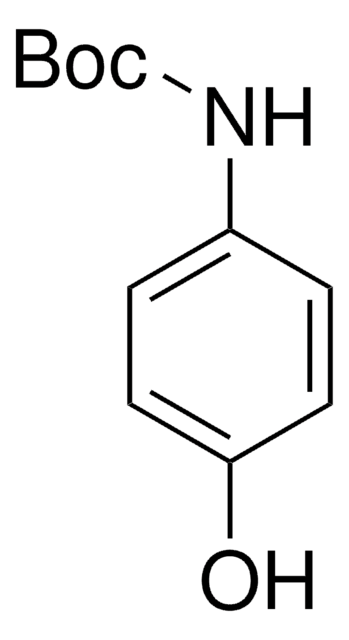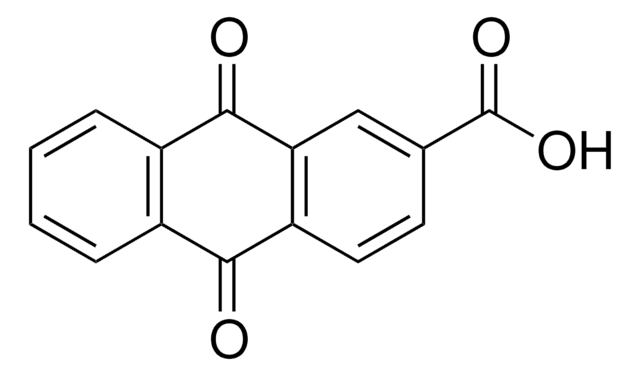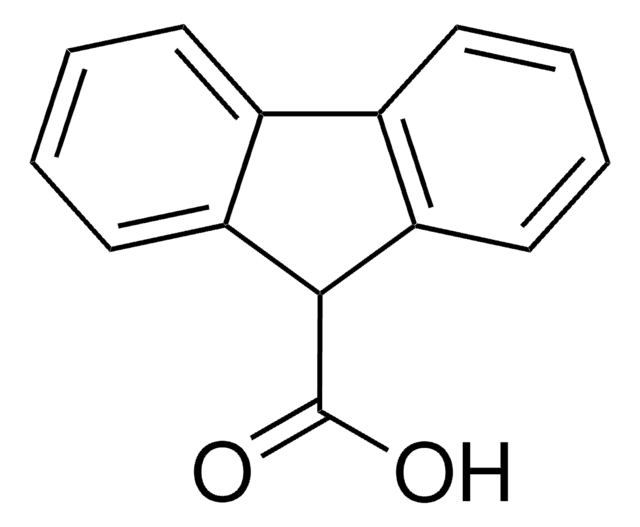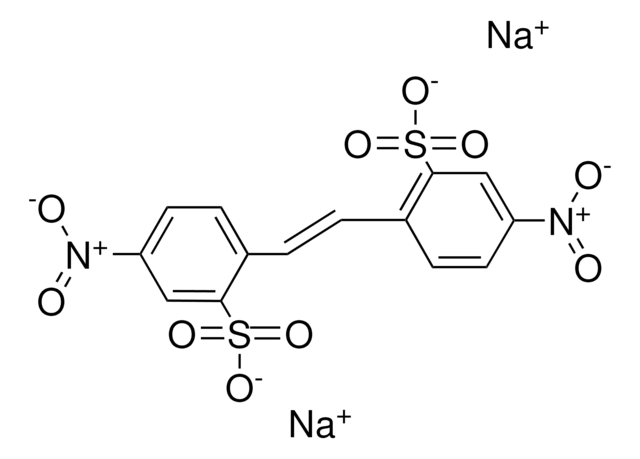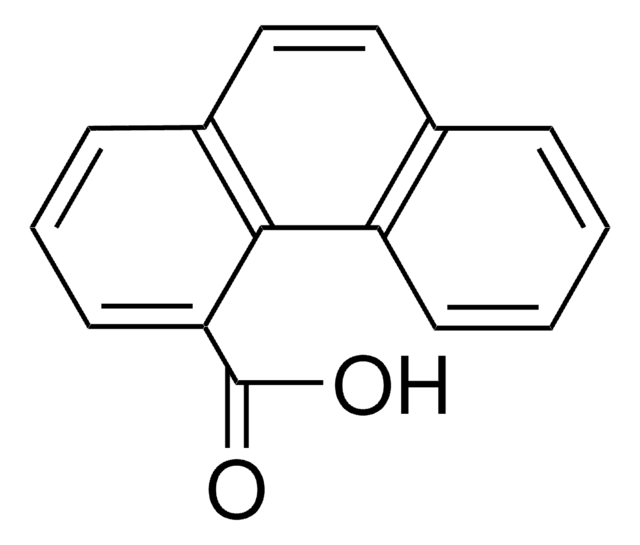A89405
9-Anthracenecarboxylic acid
99%
Synonym(s):
9-Anthroic acid
About This Item
Recommended Products
Assay
99%
form
powder
mp
213-217 °C (lit.)
λmax
254 nm at 0.1% in ethanol
SMILES string
OC(=O)c1c2ccccc2cc3ccccc13
InChI
1S/C15H10O2/c16-15(17)14-12-7-3-1-5-10(12)9-11-6-2-4-8-13(11)14/h1-9H,(H,16,17)
InChI key
XGWFJBFNAQHLEF-UHFFFAOYSA-N
Looking for similar products? Visit Product Comparison Guide
Application
- 9-Cyanoanthracene by reacting with cyanohydrins in the presence of a palladium catalyst.
- 6-Chloro-8-(9-anthracenyl)-9H-purine by Ag/SiO2 catalyzed reaction one-pot reaction with 6-chloro-4,5-pyrimidinediamine.
It can also be used as a cross-linking agent to functionalize organic second-order nonlinear optical materials to enhance poling efficiency and temporal stability.
Storage Class Code
11 - Combustible Solids
WGK
WGK 3
Flash Point(F)
Not applicable
Flash Point(C)
Not applicable
Personal Protective Equipment
Certificates of Analysis (COA)
Search for Certificates of Analysis (COA) by entering the products Lot/Batch Number. Lot and Batch Numbers can be found on a product’s label following the words ‘Lot’ or ‘Batch’.
Already Own This Product?
Find documentation for the products that you have recently purchased in the Document Library.
Customers Also Viewed
Our team of scientists has experience in all areas of research including Life Science, Material Science, Chemical Synthesis, Chromatography, Analytical and many others.
Contact Technical Service



